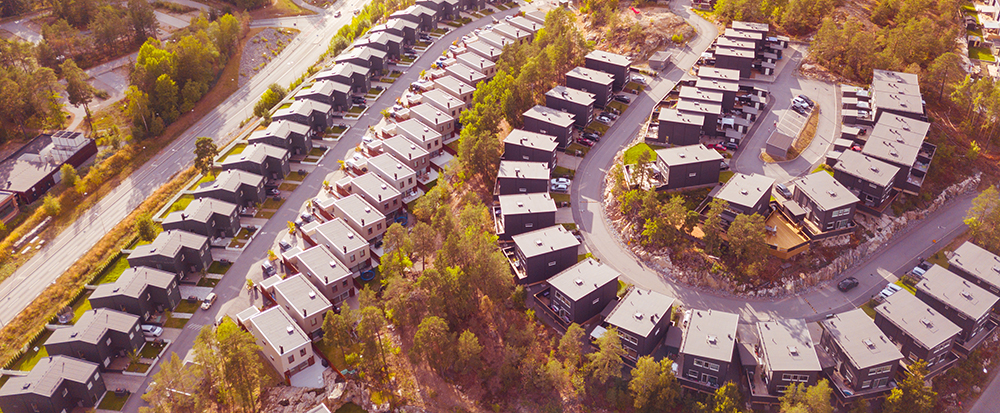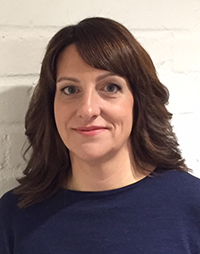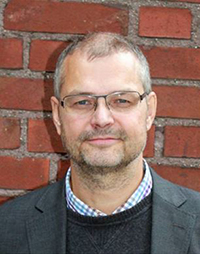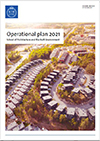Concrete, forward-looking and ambitious - The ABE School Operational plan 2021 has been established

The ABE school's Operational plan for 2021 has now been established. The Operational plan is school-wide. Head of School Muriel Beser Hugosson and Deputy Head of School Mats Wilhelmsson talks about the thoughts behind this year's activities and what the next step is.
What are the thoughts behind this year's Operational plan?
Muriel: Our focus has been to create an Operational plan that is concrete, forward-looking and clearly anchored in the organisation. After the past year where the priorities in many cases had to be changed at short notice due to the pandemic, we have recognise more than ever how important it is to have a clear Operational plan. With a strategic plan in place, there is a basis to start from even in turbulent times. Our plan is ambitious and feasible. There are many of us who work together to achieve the school's goals.
Mats: There is no order of priority. The Operational plan simply contains the questions, goals and activities that are most important for the ABE school. This year, we have reduced our activities and chosen to focus more on the initiatives that provide the greatest benefit with the resources we have.
How has the Operational plan been developed?

Muriel: Among other things, we have had digital workshops and surveys with our various councils and groups within the school. The goal has been to ensure that the plan really includes activities that address the challenges and themes that are important to the organisation.
Mats: Other important issues are also worked on both at KTH level and locally at the departments. The work of the departments is based on the school's plan, however what the actual implementation looks like will be varied and adapted to the activities at each department.
Do you have any examples of activities introduced this year?
Muriel: On the education side, we have, among other things, a project to review incentive structures that lead to more teachers attending higher education pedagogical courses. We will also review opportunities for joint reading of elements between different programmes, e.g. the five-year Degree Programme in Civil Engineering and Urban Management and the three-year Degree Programme in Constructional Engineering and Design. There is potential here to make more efficient use of our fantastic teacher resources. Another thing we want to try is the introduction of a language mentorship, where non-Swedish-speaking new employees get the chance to practice Swedish by having lunch with another employee - an easy and fun way to get new contacts and insight into other parts of the organisation!

Mats: There will be some focus on the increasing digitalisation of the education as well. Teachers needed to tackle a more digital education at lightning speed last year, and now in step two, the administration needs to be given the opportunity to develop new skills in order to be able to support this new reality. It is crucial to us that our work environment works for all employees. It is therefore important in the current circumstances to review how a functioning physical and psychological work environment at a distance can be ensured. We have also chosen to include a point about improving the physical office environment in terms of e.g. heating and ventilation. This is about having a dialogue with Akademiska hus.
How is the implementation of the activities done?
Mats: Next, the functions that are responsible for activities will be commissioned to submit a written plan for the work, then there will be a follow-up before the summer and a final reporting in November. We want to create a clear process for planning, implementation and ongoing analysis of the various activities in the plan. The Operational plan is a dynamic document and we may need to make revisions during the year. It is not about ticking off completed activities on a list, but being able to see that we are on the right track towards our goals.
Muriel: The activities that are in the Operational plan are the ones that we believe contribute the most to achieving our goals. But we need to be responsive and flexible and be able to continuously review activities if they do not lead in the right direction, or if things happen that change the context and conditions.
What is the next step?
Muriel: Now we are initiating the operational implementation of this year's activities. During the spring it is also time for the follow up of last year's Operational plan where we look at effects, indicators and results. We will then include this in the work on next year's Operational plan, which will take place during the autumn.
Mats: It is about comparing indicators but also about analysing - if the proportion of female faculty has fallen, have we then invested in the wrong activities? Should we do something different? This year, a new Research Assessment Exercise (RAE) will also be carried out at KTH, an important work that is forward-looking. The results from this will also affect the work on next year's Operational plan as well as the the new school Development plan to be launched in 2023.
Muriel: We welcome all employees' views before and during the autumn's planning when the work for next year's Operational plan takes place. It is our joint activities we plan and everyone should be able to feel involved.

